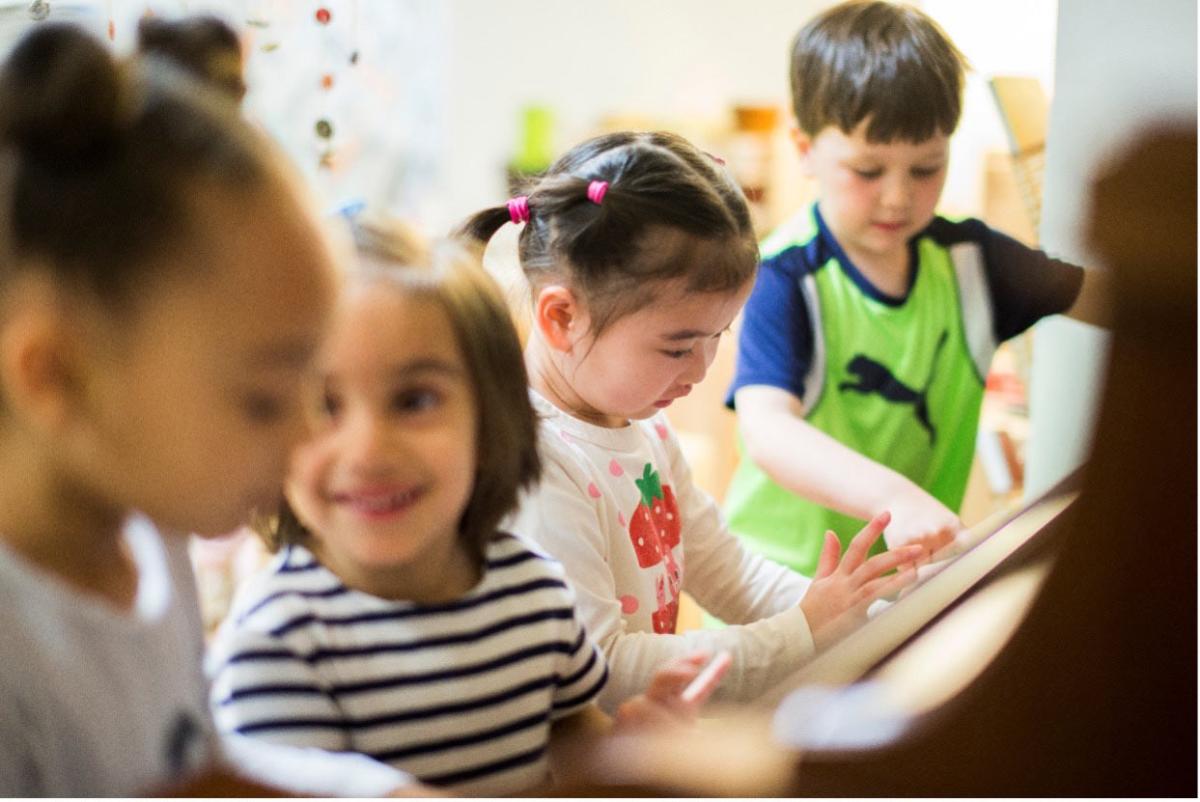
Online vs. On-Campus: Child Psychology Masters Programs Compared. The landscape of higher education has evolved dramatically over the past decade, and nowhere is this transformation more evident than in the realm of Child Psychology Masters Programs. As technology continues to advance and reshape our approach to learning, prospective students now have a wealth of options when choosing between online and on-campus programs. Both formats offer unique benefits and challenges, making it essential to understand the differences to find the best fit for your educational and professional goals.
Exploring Flexibility in Child Psychology Masters Programs – Online Format

One of the most attractive features of online Child Psychology Masters Programs is the unparalleled flexibility they offer. Students can access lectures, readings, and discussion boards at any time, which is especially valuable for those juggling professional responsibilities or family commitments. With the convenience of asynchronous learning, many students find that they can maintain a balanced lifestyle while still engaging deeply with course material. In these programs, technology bridges the gap between educators and students, making learning accessible no matter where you are located.
Online courses in Child Psychology Masters Programs are designed to foster independent study and self-discipline. Many programs utilize multimedia tools, interactive webinars, and virtual simulations that bring theoretical concepts to life. These digital experiences can provide dynamic learning environments that mimic real-world scenarios in child psychology practice. Students often appreciate that these online courses encourage proactive learning and give them the chance to revisit recorded sessions, ensuring that complex topics are fully understood.
Building Community in Child Psychology Masters Programs – On-Campus Experience
While online programs offer significant flexibility, on-campus Child Psychology Masters Programs provide an immersive experience that can be hard to replicate digitally. Being physically present on campus creates an immediate sense of community, fostering close interactions with professors and fellow students. This environment allows for spontaneous discussions, collaborative projects, and the kind of face-to-face networking that many future child psychologists find invaluable. The on-campus experience also supports hands-on learning, such as lab work, clinical simulations, and in-person counseling practice, which are critical in building practical skills.
Students in on-campus Child Psychology Masters Programs often benefit from established campus resources. These include counseling centers, research labs, libraries, and support groups that offer additional academic and personal support. Engaging directly with peers and faculty provides opportunities for mentorship and the development of long-lasting professional relationships. Such relationships can serve as a cornerstone for future career growth, as the personal connections made during these formative years often lead to collaborative research projects and employment opportunities. (Read More: Is Home Schooling in Ohio the Future of Education?).
Embracing Technology in Child Psychology Masters Programs – Online Innovations
Technology continues to play a pivotal role in shaping the future of education, and online Child Psychology Masters Programs are at the forefront of these innovations. Advancements in digital learning platforms have revolutionized how course content is delivered, making it possible for complex psychological theories to be taught through interactive modules, video conferencing, and virtual reality experiences. These innovations not only make the learning process engaging but also enable students to gain practical skills in a simulated environment that closely mirrors real-life scenarios. (Read More: Top-Ranked States for Education in 2024: A Comparative Analysis).
Interactive tools such as discussion forums, virtual study groups, and real-time feedback systems enhance the overall educational experience. These elements allow students to actively participate in their learning, ask questions on the fly, and receive support from both instructors and peers. Furthermore, many online programs integrate adaptive learning technologies that tailor the pace and content to individual learning styles, ensuring that each student can achieve their personal best. For those who thrive in a technologically driven environment, online Child Psychology Masters Programs offer a modern, efficient approach to mastering the subject matter.
Enhancing Practical Experience in Child Psychology Masters Programs – On-Campus Opportunities
The practical component of a child psychology education is crucial, and on-campus Child Psychology Masters Programs excel in providing hands-on experiences that are often difficult to replicate online. On-campus programs frequently include clinical placements, internships, and practicum sessions that allow students to apply theoretical knowledge in real-world settings. These experiences are essential in building confidence and competence in working with children and families facing diverse psychological challenges.
On-campus settings offer direct access to expert supervision, where experienced practitioners guide students through the complexities of clinical work. Such face-to-face mentoring enables immediate feedback, personalized instruction, and the development of nuanced therapeutic skills. Many students find that the direct interaction and supervision available in on-campus programs enhance their ability to interpret non-verbal cues, establish rapport with clients, and develop tailored intervention strategies. These practical experiences are an integral part of comprehensive Child Psychology Masters Programs, providing the kind of real-world training that can be pivotal in a competitive job market. (Read More: The Role of Minecraft Education in Stimulating the Development of School Children Aged 10-16 Years).
Tailoring Learning Experiences in Child Psychology Masters Programs – Flexibility and Structure

The decision between online and on-campus Child Psychology Masters Programs often boils down to personal learning preferences. For students who value structure and a predictable schedule, on-campus programs might be more appealing. The routine of attending classes at a specific time and place can provide a stable framework that promotes consistent study habits and focused learning. Structured environments also facilitate direct access to campus resources and immediate support from academic advisors, which can be especially helpful for those new to the field.
Conversely, the self-directed nature of online Child Psychology Masters Programs suits students who are comfortable managing their own time and thrive in a less structured environment. The freedom to design your study schedule around personal and professional commitments allows for a tailored learning experience that can adapt to your lifestyle. In online programs, the use of digital calendars, reminders, and progress tracking tools helps maintain discipline and ensures that academic goals are met, even in the absence of a fixed routine.
Integrating Social Interaction in Child Psychology Masters Programs – Community Engagement
Both online and on-campus Child Psychology Masters Programs strive to integrate social interaction into the learning experience, albeit through different methodologies. In online programs, virtual discussion boards, live webinars, and collaborative projects are common methods to foster a sense of community. These digital interactions often cross geographical boundaries, enabling students to connect with a diverse cohort from around the world. This diversity enriches discussions, broadens perspectives, and exposes students to a variety of cultural approaches to child psychology.
On-campus programs, on the other hand, provide the opportunity for face-to-face interactions that can lead to more spontaneous and organic conversations. Study groups, in-person workshops, and campus events create an environment where ideas can be exchanged freely and relationships can be built over time. The immediacy of on-campus interaction often leads to deeper, more personal connections, which are essential for building a robust professional network in the field of child psychology.
Weighing Career Prospects in Child Psychology Masters Programs – Job Market Insights
When considering career prospects, both online and on-campus Child Psychology Masters Programs offer strong pathways into the professional world of child psychology. Employers are increasingly recognizing the value of online education, particularly when it comes from accredited institutions with rigorous curricula. Graduates of online programs often highlight their ability to manage time effectively, work independently, and navigate digital communication platforms—skills that are highly prized in today’s job market.
At the same time, on-campus programs continue to be favored by many employers due to the hands-on training and in-person experiences they offer. The clinical practicum and direct supervision that characterize on-campus education can provide a competitive edge, particularly in fields where interpersonal skills and direct client interaction are paramount. Both types of Child Psychology Masters Programs are designed to equip students with the critical thinking, ethical understanding, and practical skills needed to excel in various settings, from private practice to educational institutions and healthcare facilities.
Navigating Support Services in Child Psychology Masters Programs – Student Resources
The availability of robust support services is a key factor in the success of any graduate program. In online Child Psychology Masters Programs, students typically have access to a range of digital resources including online libraries, technical support, and virtual tutoring services. Many programs also offer remote counseling and career advising, ensuring that students receive the guidance they need throughout their academic journey. The convenience of accessing support services from anywhere in the world can be a significant advantage for those who choose an online format.
On-campus Child Psychology Masters Programs also offer comprehensive support through academic advisors, career centers, and peer mentoring programs. The face-to-face interaction available in these settings can lead to more personalized advice and immediate assistance, whether it’s help with navigating complex course material or planning for post-graduation career steps. Campus events, workshops, and networking sessions further enhance the support structure, contributing to a well-rounded educational experience that extends beyond the classroom.
Balancing Cost and Investment in Child Psychology Masters Programs – Financial Considerations

Financial factors often play a critical role in deciding between online and on-campus Child Psychology Masters Programs. Online programs are frequently seen as a more cost-effective option, as they eliminate many of the expenses associated with campus life, such as commuting, housing, and other on-site fees. Additionally, the flexibility of online programs may allow students to continue working while studying, easing the financial burden of further education.
On-campus programs, while potentially more expensive due to additional costs, offer an environment rich with in-person support, networking opportunities, and direct access to state-of-the-art facilities. Many on-campus programs also provide scholarships, grants, and assistantships that can help offset the higher costs. Prospective students must carefully consider their financial situation and weigh the immediate and long-term benefits of each option when selecting the right Child Psychology Masters Programs for their career ambitions.
Each pathway—whether online or on-campus—brings its own set of advantages and considerations. Students interested in Child Psychology Masters Programs are encouraged to evaluate their learning preferences, career goals, and personal circumstances when making this important decision. With a clear understanding of what each format has to offer, you can choose the path that best aligns with your aspirations in the field of child psychology.




